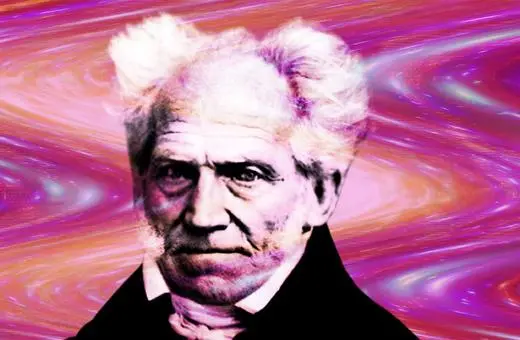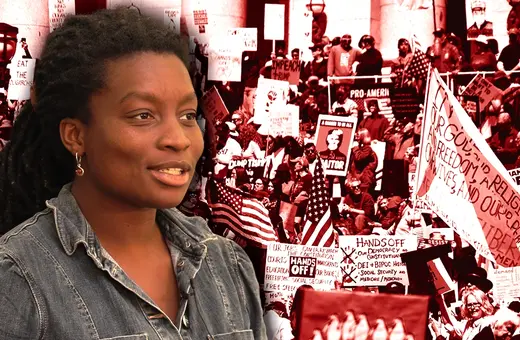In this extract from Slavoj Žižek’s new book, Christian Atheism: How to Be a Real Materialist, Žižek argues that the true formula of atheism requires destroying the very fiction of god from within rather than merely denying his existence.
Slavoj Žižek will be debating Peter Singer and Nancy Sherman at the upcoming HowTheLightGetsIn Festival in Hay, Wales, on May 24th-27th, 2024. Check out the incredible line-up of speakers and festival programme here.
What one should advocate is thus the materialist procedure of the immanent self-undermining of a religious edifice – the claim that god is evil or stupid is not only much more unsettling than Peter Singer’s claim that ordinary people are evil, it is also much more unsettling than the claim that there is no god since it destroys from within the very notion of divinity.
___
Demonstrating how its God is evil/stupid is much more effective than a direct atheist critique.
___
To make this procedure clear, let’s take an example from a different domain. The song The Night They Drove Old Dixie Down (best known version by Joan Baez) is a first-person narrative relating the economic and social distress experienced by the protagonist, a poor white Southerner, during the last year of the American Civil War; it does not glorify slavery, the Confederacy or Robert E. Lee, it rather tells the story of a poor, non-slave-holding Southerner who tries to make sense of the loss of his brother and his livelihood. As such – as an attempt to render the experience of a poor white man sympathetic to the Southern cause but dismayed at the horror of his suffering for the interests of the rich slave owners – it is much more effective in dismantling this cause than a direct abolitionist critique, in exactly the same way as endorsing a religion but then demonstrating how its God is evil/stupid is much more effective than a direct atheist critique.
___
The true formula of atheism is not “god doesn’t exist” but “god not only doesn’t exist, he is also stupid, indifferent, and maybe outright evil”
___
In The Rapture (1991, written and directed by Michael Tolkin), Mimi Rogers superbly plays Sharon, a young LA woman who works during the day as a phone operator endlessly repeating the same questions in a small cubicle among dozens of others, while in the evenings she engages in swinging orgies. Bored and dissatisfied at leading such an empty life, Sharon becomes a member of a sect which preaches that the end of times and the Rapture are imminent; turning into a passionate believer, she begins to practice a new, pious lifestyle, gets married to Randy, one of her previous swinging partners, and has a daughter Mary with him. Six years later, when Randy, now also a devoted Christian, is shot to death by a madman, this senseless catastrophe makes her and her daughter even more convinced that the Rapture is soon approaching.





















Join the conversation